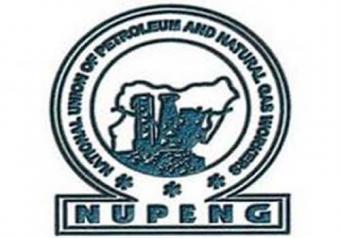Why we reported IOCs to ILO, by NUPENG President

Nigeria Union of Petroleum and Natural Gas Workers, NUPENG, has given insight into why the union reported the International Oil Companies, IOCs operating in Nigeria on International Labour Organisation, ILO, at the just concluded International Labour Conference, ILC, in Geneva, Switzerland
It will be recalled that NUPENG, through the Industrial Global Union, reported the multi-national oil companies to ILO, intimating the global body of how the IOCs, among others were perpetrating unfair labour practices. In chat with the President of NUPENG, Prince Williams Akporeha, he lamented that the IOCs has been instituting what he describes as “slave labour” in Nigeria and all efforts at making them to resort to international best practices had so far yielded no result.
According to him: “The status of NUPENG as a trade union in terms of membership, financial capacity and ability to organise and represent Nigeria oil and gas workers has been adversely affected by the repressive activities of multinational oil companies in Nigeria.
The struggle against this form of repression and workers exploitation is almost three decades old and has been a herculean task. Membership of the union has been seriously depleted with indecent work resulting in upsurge in crime and social dislocation and defiant behaviours. The international oil companies, through various policies and practices have entrenched anti union and Labour practices in the Nigeria oil and gas industries. This include refusal to allow unionization of contract staff workers in Nigeria, fragmentation of contract into thousands to frustrate the efforts of the union in organising precarious workers which they have entrenched in the system, making workers to sign pre engagement non-membership of union which makes them dread associating with the union.
“They treat labour issues with contempt and disdain and refuse to implement rulings of the Industrial arbitration panel whenever it goes against them. The wages these IOCs pay Nigerian workers are very ridiculous. An average worker is paid less than 200 dollars per month.
As a result of the employment policy of these multi nationals, workers are denied collective bargaining powers and in some cases, where such is signed, the multi nationals, through their contractors refuse to implement such despite all entreaties. More worrisome of the wicked developments is non-payment of workers severance benefit by the contractors engaged by the IOCs. A Nigerian will work under harsh condition for several years receiving peanuts and yet when the contract ends, his severance benefits are withheld by the contractors hired by the IOCs. In most cases, when confronted, they claim ignorance of the whereabouts of the contractors.
“The way health and safety of these workers are handled is disheartening and they are constantly exposed to dangerous chemicals because there are no personal protective equipment, no access to medical facilities, no casual vacation, but work long hours of work without break. The repressive activities of these multi nationals has accentuated the activities in the Niger Delta region resulting in organised attacks on installations, hostage taking and community insurgency as prevalent in the Niger Delta region today and other parts of the country where there is mass unemployment and under employment.”
On what the government is doing through the Ministry of Labour and Employment to resolve the issues, he said: “I will say that they are trying their best. But what they always tell us is that their role is advisory and that they will continue to advice the multi nationals.
When you don’t give clear directive to somebody on what must be done and he has the initiative to either take your advice or leave it, they will do whatever pleases them. I think the Ministry of Labour should also wake up and try to direct these IOCs on what they should do because the laws are there. We talk about a contract of three years plus one which means that a contract must run for three years with a window of one year to renegotiate. We have six month contractors now which the multi nationals are now indulged in.
They will offer a Nigerian working in the oil and gas six months contract, after which they roll it over because the jobs are there. They now give a maximum of one year. When you work for one year, they ask you to collect your pay off, and offer you another appointment letter in January in the oil and gas industry.
“These multi-nationals have businesses globally. Our counterparts in the Netherlands, through Industrial Global Union, told us that the amount paid to contract workers is the same with the permanent workers. Meaning, the pay is without any form of disparity. You decide whether to work on contract basis or as a permanent worker.
The salary is almost the same, but in Nigeria, you know what the situation is. There is no issue of decent work there. Our cry here is that ILO should also reach out to these companies to replicate what is happening globally in Nigeria. Is it not the same oil sold globally at the same price?
Why should it be Nigerian workers that are treated in this manner? I want to believe that the government has not really paid attention to employment policy in the oil and gas sector. They have looked the other way. Let decent work policy be instituted. If they must employ workers under contract terms, then the issue of decent pay should come in, but not rolling out contract every six or 12 months. They should return to the earlier plan of three years plus one. They should also employ permanent workers and not contract staff. A situation where Shell today does not have a single permanent staff in the category of NUPENG cadre is criminal. Are you saying we don’t have OND holders or school certificate or vocational certificate? These are people who can also work and move up.”









0 Comments